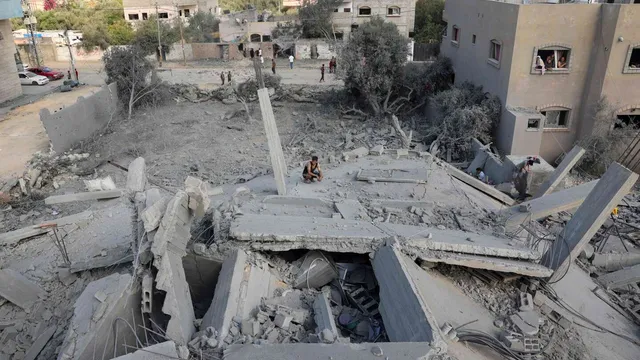
Urgent talks to prevent retaliation in Gaza conflict
2024-08-15 12:54- Ceasefire talks in Qatar aim to prevent Iranian retaliation against Israel.
- International mediators hold urgent negotiations to diffuse tensions in Gaza conflict.
- Efforts ongoing to secure ceasefire and prevent wider regional war escalation.
Express your sentiment!
Insights
International mediators, including the U.S., Egypt, and Qatar, convened in Doha on August 15 to facilitate ceasefire negotiations between Israel and Hamas, urging both parties to reach an agreement without further delays. The mediators emphasized the urgency of the situation, particularly in light of recent escalations, including the assassination of key Hamas and Hezbollah leaders. The ongoing conflict has resulted in over 40,000 Palestinian deaths since the war began on October 7, raising fears of a broader regional conflict involving Iran and its allies. Despite the critical nature of the talks, Hamas announced it would not send representatives, citing Israel's new demands as a barrier to participation. The negotiations aim to establish a three-phase plan that includes the release of hostages taken during the initial attack, a lasting ceasefire, and the withdrawal of Israeli forces from Gaza. Israeli Prime Minister Benjamin Netanyahu has maintained that Israel's military presence is necessary to prevent future attacks, while Hamas insists on a full withdrawal. The backdrop of these discussions is marked by heightened violence, with ongoing exchanges of fire between Israeli forces and Hezbollah along the Lebanese border. The U.S. has expressed hope that a successful ceasefire could deter retaliatory actions from Iran and Hezbollah, which could further destabilize the region. As the situation remains fluid, the international community watches closely, hoping for a resolution that could alleviate the humanitarian crisis in Gaza and prevent further escalation.
Contexts
On July 28, 2024, the conflict between Israel and Hamas in Gaza reached a devastating toll with over 40,000 deaths reported. The war became one of the most destructive conflicts in recent memory, causing widespread destruction and escalating tensions in the region. The Health Ministry in Gaza highlighted the staggering death toll and the high number of injuries among Palestinians, indicating the severity of the situation. On July 31, 2024, more than 40,000 Palestinians had lost their lives in the ongoing conflict, leading to a devastating loss of lives. The conflict brought immense suffering and tragic loss to the region, with over 92,000 injured since Israel's offensive against Hamas started. On August 8, 2024, Israel defended an attack on a Gaza school used by Hamas as a command post, resulting in civilian deaths. The incident raised international concerns and prompted advocacy for a reevaluation of US support for Israel. On August 10, 2024, a tragic incident unfolded as four-day-old baby twins and their mother were killed in Gaza by Israeli airstrikes while their father was registering their births. The deadly attack raised concerns and condemnation worldwide. On August 11, 2024, amid escalating violence in Gaza, an Israeli attack on a school used by Hamas resulted in a tragic loss of life, sparking controversy and highlighting the volatile situation in the region. On August 12, 2024, a father left his home in Gaza to register the births of his newborn twins, but tragedy struck as an Israeli airstrike killed his wife, mother, and newborn twins, leaving behind a scene of devastation. The incident added to the already devastating toll of the conflict. On August 13, 2024, urgency to avoid Iranian retaliation against Israel drove Gaza ceasefire talks, with negotiations aiming to defuse promised responses from Tehran and Hezbollah to recent escalations. On August 14, 2024, Columbia University president Minouche Shafik resigned from her position following criticism for her response to student demonstrations amidst Gaza protests, citing the toll the turmoil took on her family. On August 15, 2024, Lebanon's health minister toured hospitals amid fears of a war with Israel and Hezbollah, as concerns and pessimism among the Lebanese population escalated.